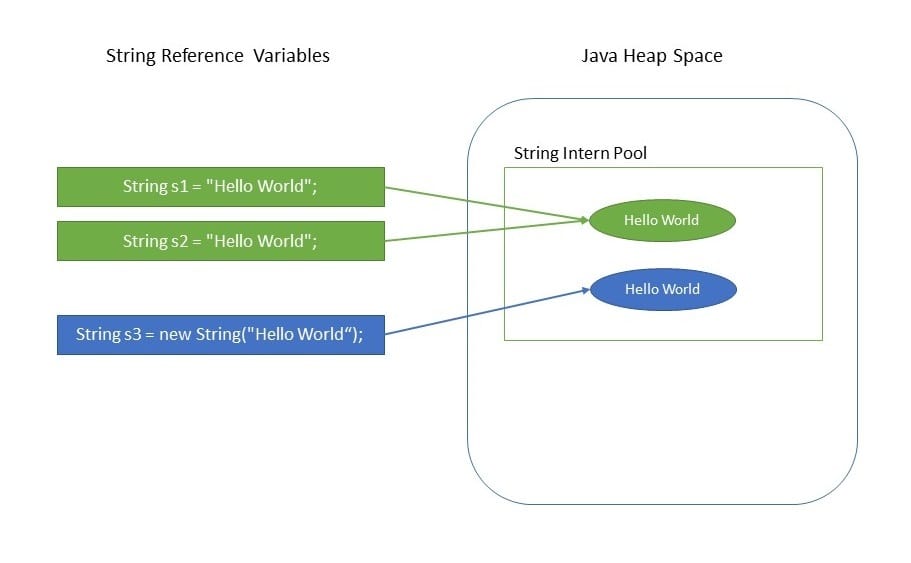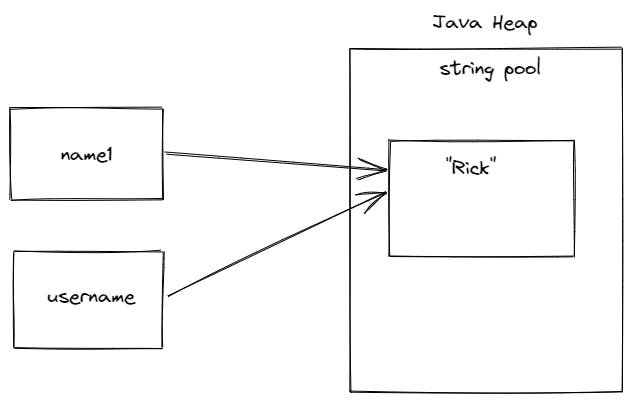Why Are Strings Immutable in Java? Discovering the Style Decisions
Why Are Strings Immutable in Java? Discovering the Style Decisions
Blog Article
Exploring the Advantages of Immutable Strings in Modern Shows Paradigms
In the realm of modern programs standards, the principle of unalterable strings stands as a keystone of robust software growth. By adopting immutable strings, developers can ensure boosted information honesty, improved string safety and security, streamlined debugging processes, raised protection procedures, and efficient performance optimization.
Improved Information Honesty

By avoiding the alteration of string objects, immutability removes the risk of unintentional changes to the information they hold. This not just improves the safety and security of the information yet likewise boosts the reliability of the code that counts on these strings.
Immutability likewise sustains more secure multithreading settings, as simultaneous accessibility to unalterable strings does not pose the risk of data corruption through synchronised adjustments. This residential property streamlines the process of taking care of strings in identical programs scenarios.
Fundamentally, immutability serves as a protective shield around the information kept within strings, boosting their honesty by ensuring that once specified, their values remain unmodified throughout the program's implementation.

Boosted Thread Security
Immutable strings improve the thread safety and security of programs by making certain that when a string object is produced, its value can not be changed. This property gets rid of the risk of concurrent strings attempting to modify the very same string concurrently, which might result in data corruption or irregular states in the program - Why are strings immutable in Java?. In a multi-threaded atmosphere, where multiple strings gain access to and adjust data concurrently, the immutability of strings gives a level of safety by assuring that the information stays the same throughout its lifecycle
Simplified Debugging Processes
Provided the improved string safety assisted in by immutable strings, a considerable advantage occurs in the realm of simplified debugging procedures. Unalterable strings, when developed, can not be changed, making it easier to map the circulation of data and recognize the source of bugs in a program. This immutability makes certain that strings stay consistent throughout the execution of the program, lowering the possibility of unanticipated changes that can bring about errors.
When debugging with mutable strings, developers typically experience problems where a string's value is modified accidentally, making it challenging to pinpoint the origin of a pest. Nonetheless, with immutable strings, the information stays unmodified, enabling developers to concentrate on analyzing the actual logic of the code as opposed to locating where and when a string was modified inaccurately.
In addition, unalterable strings simplify the debugging procedure by allowing less complicated recreation of bugs. Since immutable strings do not change state, designers can recreate and study insects better, leading to quicker identification and resolution of issues within the codebase. This streamlined debugging process eventually adds to greater software program high quality and improved general growth performance.

Raised Safety Steps
Enhancing data defense and strengthening system integrity, the utilization of unalterable strings in software applications contributes significantly to increased safety and security procedures. Immutable strings, as soon as developed, can not be changed, supplying an important defense versus malicious meddling or unapproved gain access to. By guaranteeing that sensitive data saved in strings stays unaltered throughout the program's execution, the threat of information breaches or injection strikes is substantially decreased. Why are strings immutable in Java?. Unalterable strings additionally play an essential duty in stopping typical safety and security susceptabilities such as barrier overflows and SQL injection attacks, as efforts to manipulate string information at runtime are inherently restricted.
Furthermore, the immutability of strings boosts the predictability of program actions, making it less complicated to validate inputs and prevent unexpected modifications that can jeopardize safety and security. This predictability streamlines the process of auditing and confirming code, allowing developers to recognize possible security loopholes better. Overall, including unalterable strings into software program advancement practices not only boosts the effectiveness and reliability of applications however also enhances their durability versus security threats.
Reliable Efficiency Optimization
When dealing with mutable strings, operations like concatenation or substring development often result in the production of brand-new string objects, leading to memory overhead and boosted handling time. By permitting strings to remain unchangeable and consistent, immutable strings assist in better memory administration and caching chances, eventually boosting the total efficiency of the software application.
Unalterable strings also play an essential function in multithreaded atmospheres by advertising thread safety. Why are strings immutable in Java?. Considering that unalterable strings can not be changed as soon as developed, they can be shared throughout strings without the threat of unforeseen modifications, reducing the requirement for synchronization systems and boosting concurrency. Additionally, immutable strings simplify debugging processes as designers can trust that a string's value will certainly continue to be consistent throughout the program's execution, getting rid of prospective mistakes created by mutable state changes. To conclude, the use of unalterable strings not only boosts safety however additionally significantly adds to the effective performance optimization of contemporary software application systems.
Final Thought
In final thought, the advantages of using immutable have a peek at this website strings in contemporary article source programs standards can not be overstated. Boosted information integrity, boosted string security, streamlined debugging processes, enhanced safety measures, and effective performance optimization all add to the total performance of programming jobs. By integrating unalterable strings into programs techniques, designers can take advantage of an extra robust and reliable codebase.
Immutability, a crucial function of strings in programming languages such as Java and Python, ensures that as soon as a string item is developed, it can not be modified or modified.Immutable strings boost the thread safety and security of programs by guaranteeing that as soon as a string item is produced, its worth can not be modified. Unalterable strings likewise play a crucial function in preventing common safety vulnerabilities such as barrier overflows and SQL shot attacks, as efforts to manipulate string information at runtime are inherently limited.
By permitting strings to continue to be constant and stable, unalterable strings assist in better memory administration and caching possibilities, inevitably enhancing the general performance of the software.
Unalterable strings streamline debugging procedures address as designers can trust that a string's worth will remain consistent throughout the program's execution, getting rid of possible mistakes triggered by mutable state changes.
Report this page